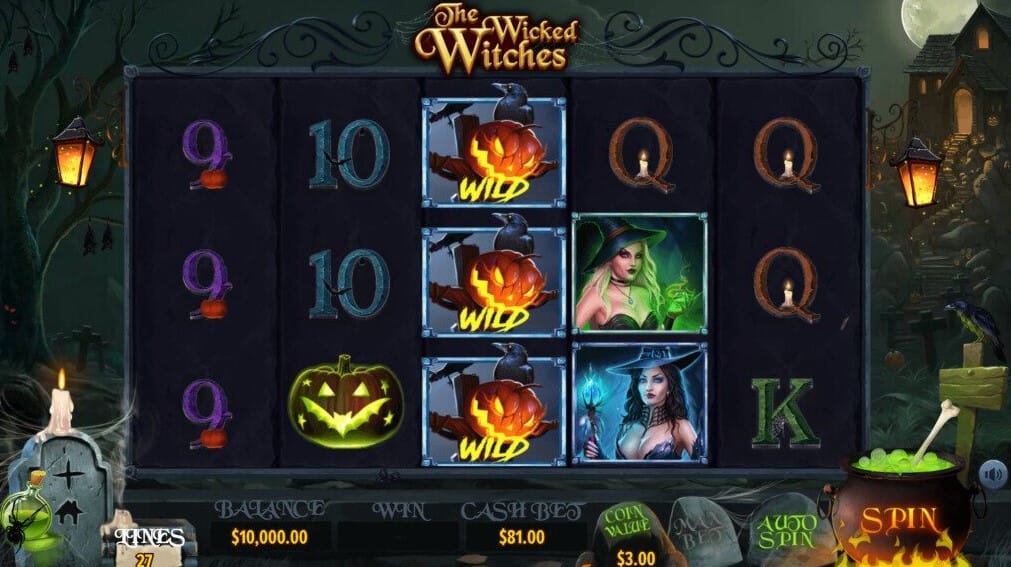
Understanding Volatility in Slots: What Every Player Should Know
Introduction
Ah, the world of slots! Bright lights, catchy tunes, and the thrill of potentially hitting it big. For many players, slot games offer a Zeus Ancient Fortunes Slot Payout unique blend of excitement and anticipation. But hold on just a second—there’s more to these spinning reels than meets the eye. If you’ve ever found yourself asking, “What’s up with volatility in slots?” you’re not alone. In this comprehensive guide, we’ll break down everything you need to know about volatility in slots, from how it affects your gameplay to tips for choosing the right machines. So grab your favorite snack and settle in; we’ve got a lot to cover!
Understanding Volatility in Slots: What Every Player Should Know
When we talk about volatility in slots, we're diving into an essential aspect of slot game mechanics that can significantly impact your gaming experience. So, what exactly is volatility? Simply put, it refers to the level of risk involved when playing a particular slot machine.
Defining Volatility: The Basics Explained
Volatility is categorized into three main types:
Each type brings its flavor to the table, making some players prefer one over another based on their gaming style or risk appetite.
How Does Volatility Affect Your Gameplay?
So why should you care about volatility? Well, understanding this concept can slot reviews podcast profoundly influence your gambling strategy and bankroll management.
- Low Volatility Slots: Perfect for players who enjoy longer sessions without risking too much cash at once.
- High Volatility Slots: Best for thrill-seekers who are okay with losing more frequently for the chance to win big.
Understanding volatility helps you set realistic expectations and choose games that align with your personal preferences.
The Relationship Between RTP and Volatility
RTP (Return to Player) is another critical factor that intertwines with volatility. While volatility measures risk, RTP tells you how much money a slot will theoretically pay back over time.
- High RTP + Low Volatility: You might not get rich quick, but you're likely to have fun while winning small amounts often.
- Low RTP + High Volatility: Good luck! You could strike gold or walk away empty-handed.
By recognizing both of these metrics, players can better navigate their gaming decisions.
Exploring Popular Slot Games With Different Volatilities
Now let’s take a look at some popular slots that exemplify different levels of volatility.
1. Low Volatility Slot Games
-
Starburst
Known for its vibrant colors and simple gameplay, Starburst offers frequent payouts but typically smaller ones.
-
Blood Suckers
A vampire-themed game that pays out regularly—ideal for those who want consistent wins without high risks.
2. Medium Volatility Slot Games
-
Book of Dead
A player favorite that balances good potential payouts with moderate risks. -
Thunderstruck II
This Norse mythology-themed game offers solid bonuses without being overly risky.
3. High Volatility Slot Games
-
Mega Moolah
Famous for its life-changing progressive jackpot; this game is thrilling but can be challenging on the wallet. -
Dead or Alive II
Offers huge wins if you hit the right combinations—great for those willing to take risks!
Choosing the Right Slot Game Based on Your Risk Tolerance
When picking a slot game, it’s essential first to assess your risk tolerance:
Deciding Factors for Choosing Slots
By determining these factors upfront, you'll find it easier to select machines that fit your style!
Tips for Playing Low vs High Volatility Slots
- Set smaller bets.
- Play longer sessions.
- Enjoy regular wins without significant losses.
- Increase your bet size cautiously.
- Prepare for droughts between wins.
- Aim for those massive jackpot opportunities!
Bankroll Management Strategies Tailored to Slot Types
Effective bankroll management can make all the difference in maximizing your playing time and enjoyment at online casinos! Here are slot podcast tailored strategies based on different volatilities:
Bankroll Management Tips for Low Volatility Slots
- Stick to lower stakes per spin.
- Reserve funds for longer play sessions.
- Embrace smaller wins as part of the fun!
Bankroll Management Tips for High Volatility Slots
- Set aside a dedicated budget specifically for high-risk games.
- Consider larger bets on fewer spins (when feeling lucky).
- Always be ready to walk away when needed—don’t chase losses!
The Psychology Behind Playing High vs Low Variance Slots
Have you ever noticed how playing certain types of slots makes you feel? There’s psychology at play here!
Why Players Prefer Low Variance Games?
Many enjoy them because they provide:
Why Players Are Drawn To High Variance Games?
On the flip side:
Understanding these psychological aspects can help players choose games that suit their personality better!
Progressive Jackpots vs Standard Jackpots: What's The Difference?
So what's all this buzz around progressive jackpots anyway?
Defining Progressive Jackpots
These jackpots increase with every bet made until someone hits it big! They’re usually linked across multiple games or casinos—resulting in life-changing sums up for grabs!
Examples Of Popular Progressive Jackpot Slots
| Game Title | Type | Max Payout | |------------------|-------------------|---------------------| | Mega Moolah | Progressive | Over $20 million | | Divine Fortune | Progressive | Varies frequently | | Hall of Gods | Progressive | Upwards of $7 million|
Note: Remember that although they offer massive rewards, they tend toward higher volatility profiles.
FAQs About Slot Game Volatility
What is slot volatility?
It measures how risky a slot machine is regarding payouts; low means frequent small wins while high indicates fewer but larger payouts.
How does RTP relate to volatility?
RTP shows potential returns over time; pairing it with volatility helps assess both risk level and payout frequency.
Can I change my betting strategy based on game volatility?
Absolutely! Adjusting your bets according to whether you're playing low or high variance can enhance your overall experience.
Are there strategies specific only to progressive jackpot slots?
Yes! Given their nature, it's wise to set aside larger portions of your bankroll when aiming at these massive prizes while keeping an eye on volatility levels too!
How do I figure out which slots suit my style best?
Consider testing different games across low/medium/high variances initially before settling down into those that resonate most strongly with what excites YOU personally!
ol7/hr1hr1/##
Feel free to dive deeper into each section as needed; after all knowledge builds confidence while navigating any casino floor—or online casino site!